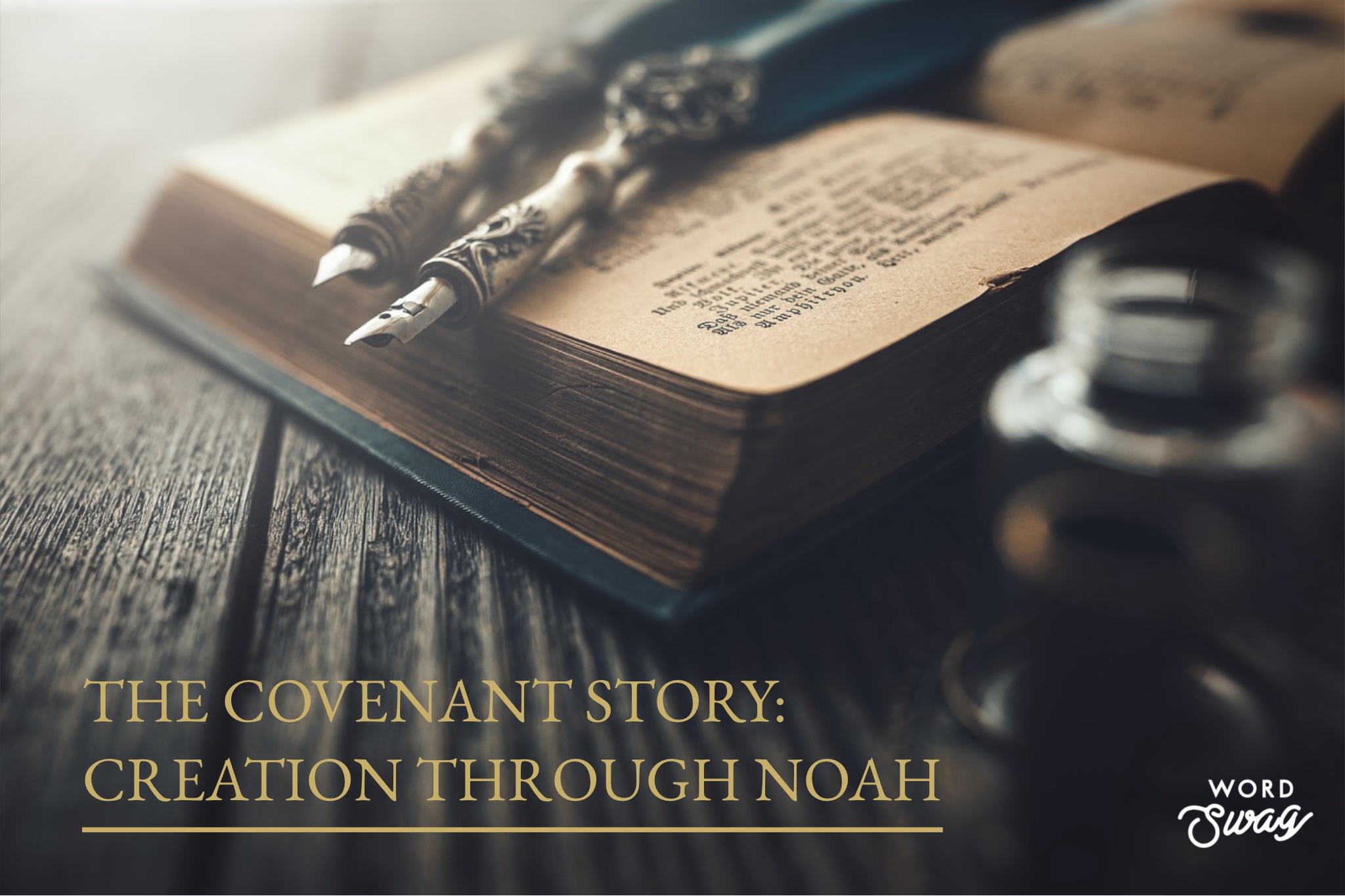In the beginning, God spoke. In his words, he revealed himself, expressing the glories of his person and his eternal Triune relationship in light, darkness, the firmament-heaven, seas, dry land, vegetation, sun, moon, stars, creatures of the land and sea, and, above all, man, who is created as the unique image of God. God’s words were his bond. They not only called into existence the world and everything in it from nothing, but his word bound him to the world. His word was his covenant.
Creation was not completed with one grand word spoken so that everything was created instantly. Rather, God progressively moved creation from immaturity–formless and void–to greater maturity over the span of six days. His creative actions set the stage for how the story of the world will unfold. Through God’s covenant words, the world will move from immaturity to maturity.
The story begins with creation. We see God’s plan in creation: to share his divine love. God wasn’t forced to create for any lack he had in himself. He created from an overflow of love within his relationship as Father, Son, and Spirit. Each member seeking to glorify the other in their union decides in their eternal council to create a world that will share their life (see, e.g., Gen 1:26).
God creates the world and man as its highest creature and chief representative. Man is created in the image of God and relates to him as a son relates to his father (Lk 3:38). God created man in union and communion with him. Man is in covenant with God. God creates the man immature. The rest of creation is also immature compared to where God wants it to be. God sets before him the task of maturity for himself and the world around him. He wants man to grow up into his likeness and be fruitful, multiply, and fill the earth, taking proper dominion over it and developing it into a fit place for God and man to dwell together.
In his infancy, Adam is given one basic command to obey: refrain from eating from the Tree of the Knowledge of Good and Evil. Man disobeys, falling into sin and condemning himself and his posterity to the judgment of death. God promises that he will rescue him and complete his purpose: to unite himself with his creation and share his life with it.
From the time of Adam onward, sin matures. Cain and his line represent this growing problem in the world. Sin matures to the point that God has to take the creation back to its original state of being formless and void, one big mass of water hanging in space. He does this through the Flood. But while pronouncing this judgment, God establishes his covenant with Noah, a member of the old creation. God delivers his original creation in and through Noah. He does this by building a boat that reflects the created order and carries his family and representatives of all the animals into the new creation that is to come through death. Amid the judgment of the flood, God remembers his covenant and moves the world toward its new creation (Gen 8:1). He brings Noah, his family, and the animals into his new creation and puts Noah into a new garden: a vineyard.
God’s covenant with Noah is that he would save the entire created order. The sign of his promise is the bow in the clouds. Salvation is not reserved for one part of creation–humans–but for the entire creation–land, sea, animals, rocks, etc. Man has grown up a bit and is given some responsibility he didn’t have before. In order to stem the tide of violence, God gives man the authority to judge and execute those who shed blood (i.e., capital punishment). They couldn’t do this before with Cain and his children. Because of this, violence ran wild. But now things have changed. Even with the changes, it is still the old creation that is being saved.
The life and work of Jesus can’t be understood rightly apart from these opening chapters. The advent of Jesus doesn’t start a new story but brings God’s one continuing story to its apex. Jesus himself makes this clear to two disciples on the Road to Emmaus when he “began with Moses and all the prophets” and “expounded to them in all the Scriptures the things concerning himself” (Lk 24:27). The work of Jesus will be to complete the original plan for man and the rest of the created order. Jesus will take dominion over the earth, establishing a kingdom that will be the perfect image of God’s heavenly kingdom so that God’s will will be done on earth as it is in heaven.
Though the salvation of individuals is integral to this plan, it is not the extent of the plan. God’s plan is for everything from dirt to international politics to be ordered to his will under the lordship of his Son. Our Advent anticipation is peace on earth as it is in heaven.















